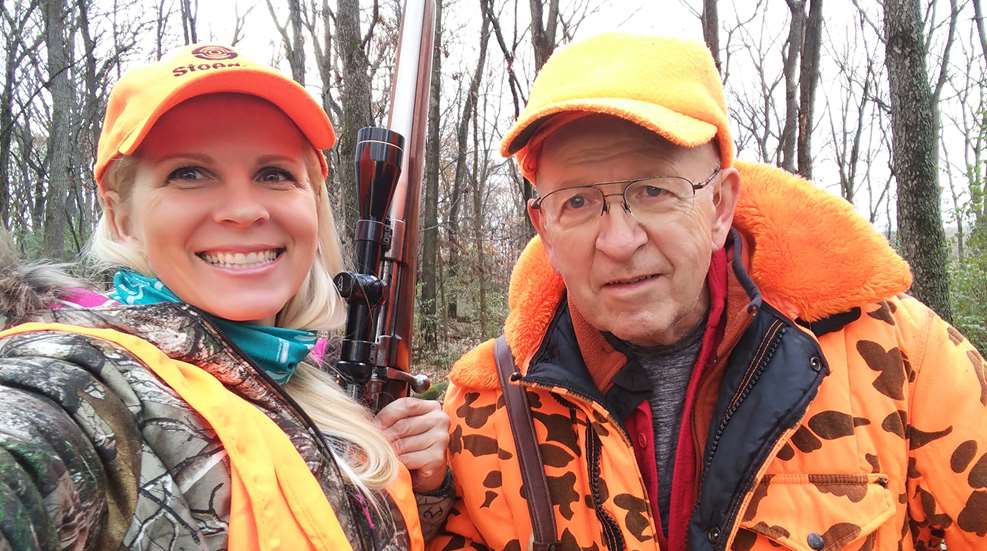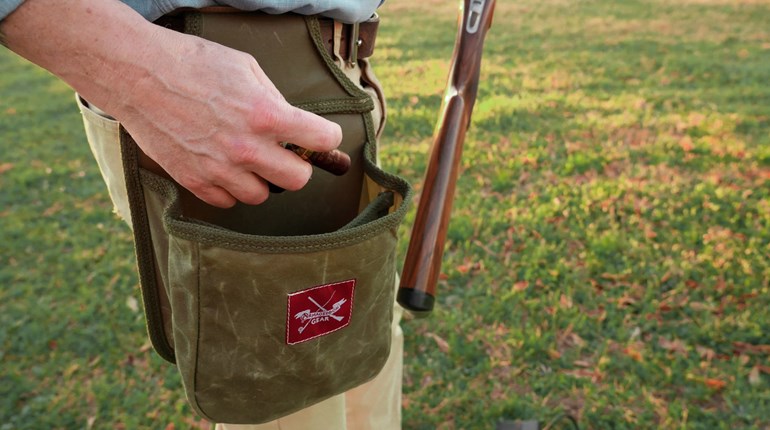
Spending time outdoors is one of the most enjoyable aspects of the shooting sports. Whether you are hunting, plinking or competing, the shooting sports offer a great opportunity to make family memories, especially if you are blessed to do so with multiple generations. As such, we must face the fact as we age, we lose the ability to do things as effortlessly as we once could. Building a plan to gracefully accept the challenges that accompany growing older is a goal we should all incorporate sooner than later. Likewise, recognizing that elder family members are already addressing some of those challenges is the first step toward helping them have a safe and fun shooting experience. Here are some suggestions to help your parents or grandparents enjoy their outdoor time to the fullest.
Hunting
It’s important to recognize that our parents and grandparents might not have had the same exposure to safety as the younger generations. In some states, Hunter Education requirements are modern phenomena. Go over the basics, as you would with any new hunting partner. Hunting safety also includes physical safety. There will come a time when hunting from a tree stand is no longer a safe plan. A parent or grandparent may also need to use trekking poles to walk through the woods.
Human bodies lose strength, flexibility and coordination as they age. It’s important to take these mobility issues into account when afield with an elderly hunting companion. While I can walk up a hill in 5 minutes, it might take my 80-year-old dad 10 minutes. Keep in mind that your parents or grandparents might operate on a slower timeline. Slow down and take plenty of time to rest. The goal of spending time with family isn’t to get it over with as fast as possible. Take the time to make lasting family memories.

Author's father and son in the blind posing with note from his grandson's first buck.
To minimize stress on your family members, build a plan into your day for hydration, rest periods and breaks from extreme temperatures. For example, my father and I take a break from hunting for a couple hours in the afternoon to have a snack inside by the fire, and sometimes drive to a local Amish store to break up the day. Giving people a break from being on their feet in heavy hunting gear, and a chance to rehydrate and check in on each other is a good plan no matter your age! Make sure that even in cold weather you hydrate when you finish a walk to your deer stand, or after covering a large field hunting pheasant. When it’s hot, items like Liquid IV help replace lost minerals, and a neck fan will keep your family cool. However, nothing can replace a pace that fits all participants!
Older hunters might have a sentimental attachment to their heavy hunting rifles, but encourage them to use a lighter, easier to manipulate firearm if necessary. If they are set on their heavy or awkward gun, offer to carry it for them or bring a hunting tripod. If their choice is really not a good fit, make the effort to have them try something more suitable, just so they know what options are there. Vision changes may also mean they need an optic instead of iron sights. These alternatives are great ways to keep your grandparents outside and having fun.

Plinking
What we take for granted in terms of the rules of firearms safety might have never been presented to older shooters. Establish the same rules and range format you would for anyone: Follow the 4 rules of firearms safety, and start with firearms they can manage. It doesn’t mean that you sit them down like a child and make them feel awkward, but you could say something like, “Let’s talk about how you have always stored your firearms.” And make sure that you know how your parents and grandparents are storing them.
While your parents or grandparents are within their rights to have a home defense firearm, they should know if it’s loaded, and ensure that young children don’t have access. Maybe your parent’s arthritis has made it difficult to load and unload a handgun. This might be a time to consider alternatives or shop for something easier to manipulate.
If you are plinking with elderly family members, this can be a good time to help them try different firearms to find something they enjoy shooting. Just as with the concepts of safety, don’t assume they know everything. It’s okay to say, “Grandpa, can I show you how I shoot this,” or “Grandma, have you ever shot a gun like this? Can I show you what I was taught?” Plinking is a great way to spend time with your family and make sure they are still safely handling firearms. You could help them find a firearm that is better suited for their strength and purpose now, versus what they might have used 30 years ago.
Competition
If you are lucky enough to take your parent or grandparent to a competition, choosing a firearm will depend on what discipline or event they decide to shoot. But something simple that does not require lots of movement or manipulation of the firearm, is a good place to start. Make sure they understand all of the rules they are required to follow. A dry-fire practice session will help them understand the process for the particular discipline they choose.
A great discipline for elderly shooters would be steel challenge—the participant stands still and shoots five rounds at relatively close targets with either a .22 rifle or pistol, or a centerfire pistol. NRA Smallbore or long-range rifle matches are another good choice, but require the participants to lie prone behind the rifle. Benchrest shooting is an option many older participants can take part in, because it’s all about accuracy from a rest.
In the end, approach shooting sports with your wisest family members in a manner that you want your children and grandchildren to apply to you, when you are that age. Establish safety as your primary goal and create memories with your loved ones.















































